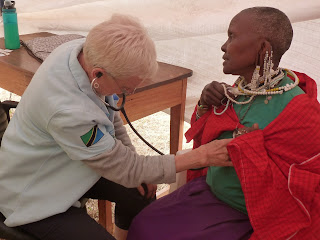I'm beginning work on a new blog:
storytelling~the healing path
"The degree to which you can tell your story is the degree
to which you can heal."
~S. Eldredge~
"The degree to which you can tell your story is the degree
to which you can heal."
~S. Eldredge~
This blog will explore the importance and role of storytelling in medicine, a field known as "narrative medicine."
It encourages the healthcare provider to trace his or her own journey into a profession that is both challenging and rewarding, full of both hope and despair, and, depending on the day of the week, both exhausting and inspiring. Perhaps his father and grandfather before him were physicians and to aspire anything less meant outright mutiny in his family. Perhaps she navigated a life-threatening childhood illness, herself.
Narrative enables them to share the stories that unfold for them in the hospital among the patients they care for. Which patients touched them most deeply, and why? What scares them the most? Where do they find the courage, dedication and solace that make it possible to go on day after day, year after year?
jan
Narrative enables them to share the stories that unfold for them in the hospital among the patients they care for. Which patients touched them most deeply, and why? What scares them the most? Where do they find the courage, dedication and solace that make it possible to go on day after day, year after year?
Another perspective involves the most basic skill in medical
care—obtaining a thorough history of the patient’s illness. Not just the facts (When did it start? What are your symptoms? What have you already tried?) but their feelings and thoughts about it. What it means to the patient to be sick. How it
affects the people around them, and how they feel about that.
The final path is therapeutic. It requires the caretaker to become a storyteller, to develop a talent for re-imagining the patient’s recovery in metaphorical terms, suggesting that healing is possible because someone has already experienced it.
The final path is therapeutic. It requires the caretaker to become a storyteller, to develop a talent for re-imagining the patient’s recovery in metaphorical terms, suggesting that healing is possible because someone has already experienced it.
Why is any of this important? Because patient outcomes are improved when the provider understands the patient's illness in the context of his or her experience, culture, and expectations.
Because satisfaction improves when the patient feels he has been heard. And, because (listen up all you health system CEOs and CFOs...) in the long run it saves time and money.
Because satisfaction improves when the patient feels he has been heard. And, because (listen up all you health system CEOs and CFOs...) in the long run it saves time and money.
"storytelling--the healing path" will be up and running soon. You can find it at http://www.thenarrativepath.blogspot.com or connect to it here. In the meantime, have a wonderful 4th of July!
jan












No comments:
Post a Comment